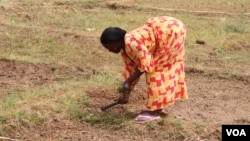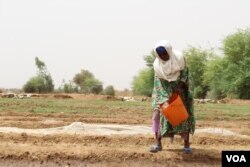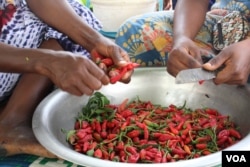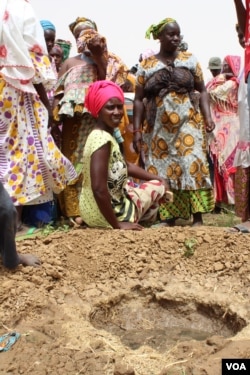An agricultural project in northern Senegal funded by the Italian government is taking a different approach to reducing migration by focusing not on the young men who travel to Europe, but on their female relatives.
The project, Hadii Yahde, is funded by Italian Development Cooperation, an agency in Italy's foreign ministry and implemented by the nonprofit Green Cross Italia. It has targeted five villages along the Senegal River in the Matam region, a place where harsh living conditions and the lack of opportunity — less than half the population has completed primary school — have pushed many to seek a better existence abroad. The latest government census in 2013 showed the Matam region had the highest proportion of emigration in Senegal.
The majority of people in Matam work in agriculture, and women do much of that work. Mamadou Sada Bocoum, the local Hadii Yahde coordinator, said these "dynamic women" have been "working the earth for years. They are the head of the household. They have children, they have parents who migrated, and they are very aware of this issue."
A difficult life
In the village of Woudourou, women plow the earth and tend plots of okra, chilli peppers and onions. Resident Maïramé N'Diaye's family struggles to make ends meet, as most others do.
She said working in the fields is difficult. "Sometimes the rain comes, sometimes it doesn't," she said. "Sometimes you make money, sometimes you don't."
Women in Matam rely heavily on remittances from family members who have gone abroad to feed and care for their families. Oumar Diack, who coordinates the Federation of Associations for Fouta's Development, a local NGO, said mothers have helped their children leave by selling jewelry and other goods to raise money for travel expenses.
The Hadii Yahde project interviewed about 500 families in Matam and found more than half had one family member abroad, while another third had at least two. Residents said the common route is to go work in another African country and try to obtain a visa for Europe.
But since January, Hadii Yahde has been teaching women how to rotate crops for year-round revenue and how to plant a wider variety of crops, including fruit trees. These are managed by women like Fatimata Sow, who is a group leader in the village of Sinthiou Diam Dior. She said that if they could make enough money growing onions, they could hire the men and no one would need to leave.
Skepticism from some
Some women taking part in the project are skeptical that changes to local agriculture will be enough to compete with the hundreds of dollars a month a family member doing even menial labor abroad can send.
Resident Marianne Mbathe said working in the field is not enough. She said that what they'd planted so far was not selling, and that there was no point in planting crops if watering them was unaffordable.
But more opportunities may be coming. In March, President Macky Sall launched the renovation of a dilapidated road linking the towns of Ndioum, Ourossogui and Bakel, which is expected to reinvigorate the local economy, connect young people to jobs and improve trade.



